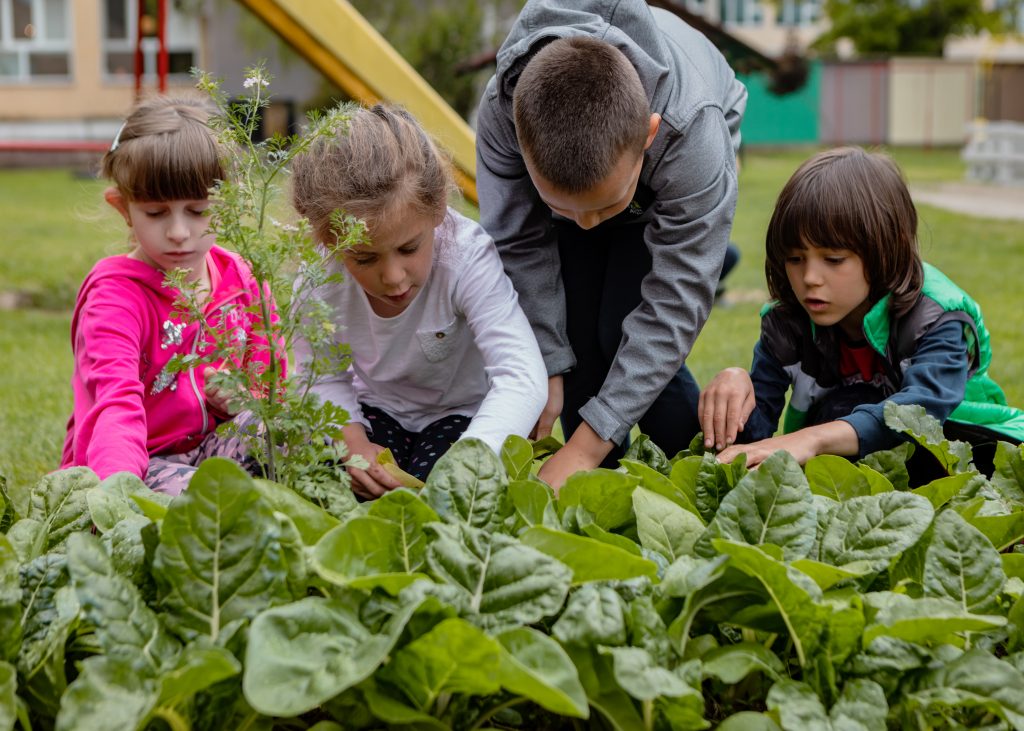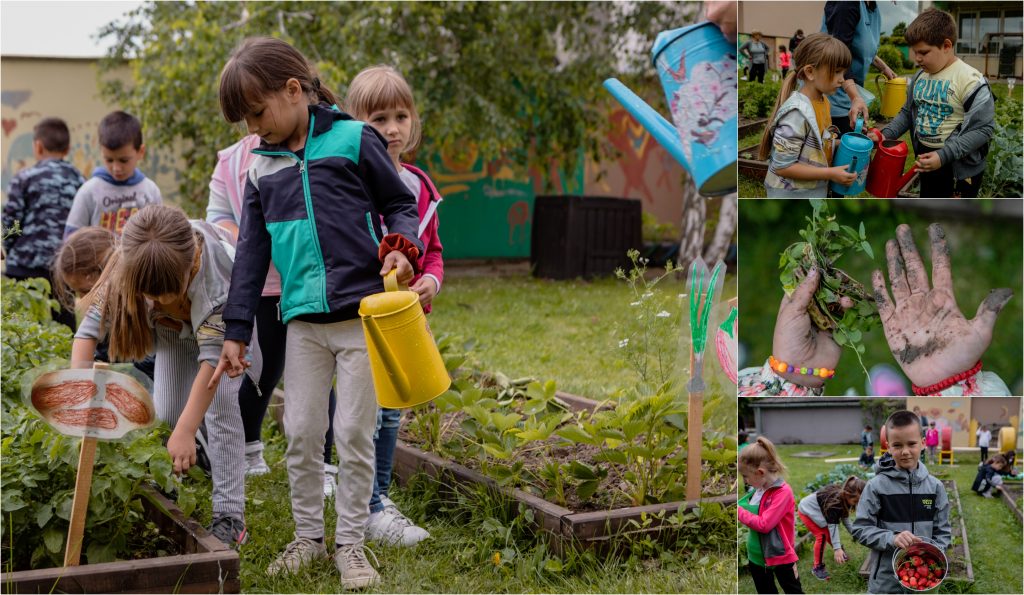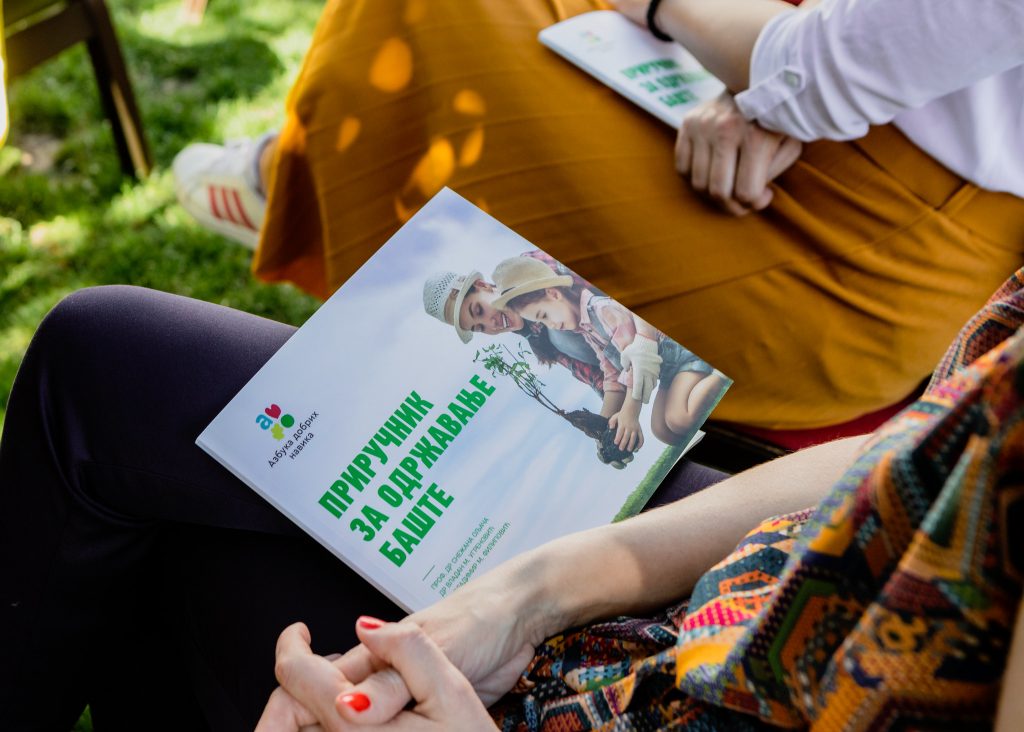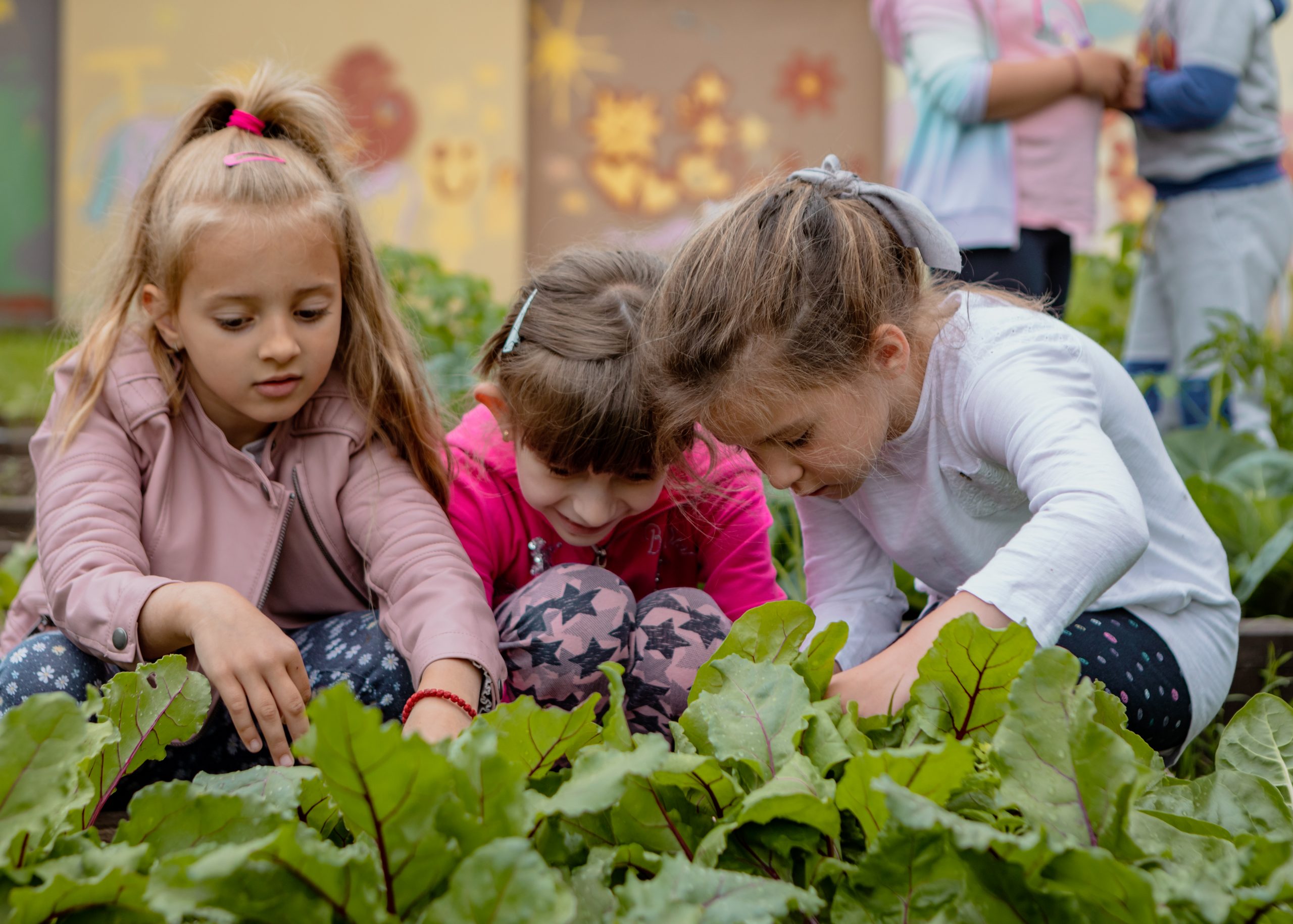Activation of the senses and motor skills, spreading awareness of the importance of environmental protection, nurturing healthy eating habits, are just some of the benefits of gardening for children. That is why one of the focuses of our work is the establishment of gardens in preschools throughout Serbia.
Bearing in mind that children at an early age have the greatest learning capacities and that contact with nature, staying outside, and growing plants have a positive effect on overall health, the reasons for including children in gardening are numerous. Our expert from the “ABC of Better Me” program, Vesna Zečević, singled out a couple of the most important ones for you. You can read more about these gardens that we like to call “small laboratories for children” right here.

1. Gardening for children activates their senses and motor skills
In the garden, in addition to being able to touch the soil, use various tools and seeds, children can also spot the differences between different plants, in terms of color and size, smell different scents, hear sounds of different insects. Interacting with the surrounding nature encourages the learning process. Playing with soil, hoes and water buckets, digging, planting, watering, pulling out weeds stimulate movements of the body, particularly arms and hands. These activities help with the development of motor skills, and through their own experiences, children learn what is difficult and what is easy, small or big, smooth or rough, cold or warm, dry or wet.
2. Children learn about natural processes through play
From the moment they sow the first seed, with immeasurable curiosity, they will follow the growth and flowering of plants, the formation and ripening of fruit. They will have countless questions, and will therefore learn about natural processes. They will learn about the importance of insects and worms for plants and will understand that everything in nature is connected. Comparing the growth of plants and the size of the fruit, counting seeds, fruits, or petals of flowers are interesting games for children and recognizing plants by appearance and name is an excellent memory game.

3. They gain responsibility, patience and awareness about the importance of the environment
By being active in the garden, children will quickly learn that they have to be patient and responsible and wait until the seed germinates so that their plant can grow and yield its first fruits. They will learn that it is necessary to water them regularly, to clean them from weeds and to dig around them, that plants need enough sunlight, and to wait until a seed turns into a plant. They will quickly learn why it is important to care for the environment. That is an opportunity to learn about vermin, pesticides, pollution and recycling.
4. Gardening nurtures self-confidence and healthy diet habits
Planting and cultivating plants, picking vegetables and fruit, cleaning vegetables and getting children involved in the preparation of food from plants, which they helped grow, will certainly result in a wish to try and consume the food they prepared. They will gladly try vegetables and fruit they planted and cultivated themselves. This is the best way for children to understand the importance of healthy food and a proper diet.

5. Great family and preschool activity
Working in a garden can be a family tradition which brings the whole family together, every year at the same time. Parents and children will spend quality time working as a team, and later they will all participate in food preparation, which is a rarity today. Studies have shown that the benefits of gardening improve moods and that it has positive effects on the health and quality of life of both adults and children.
















